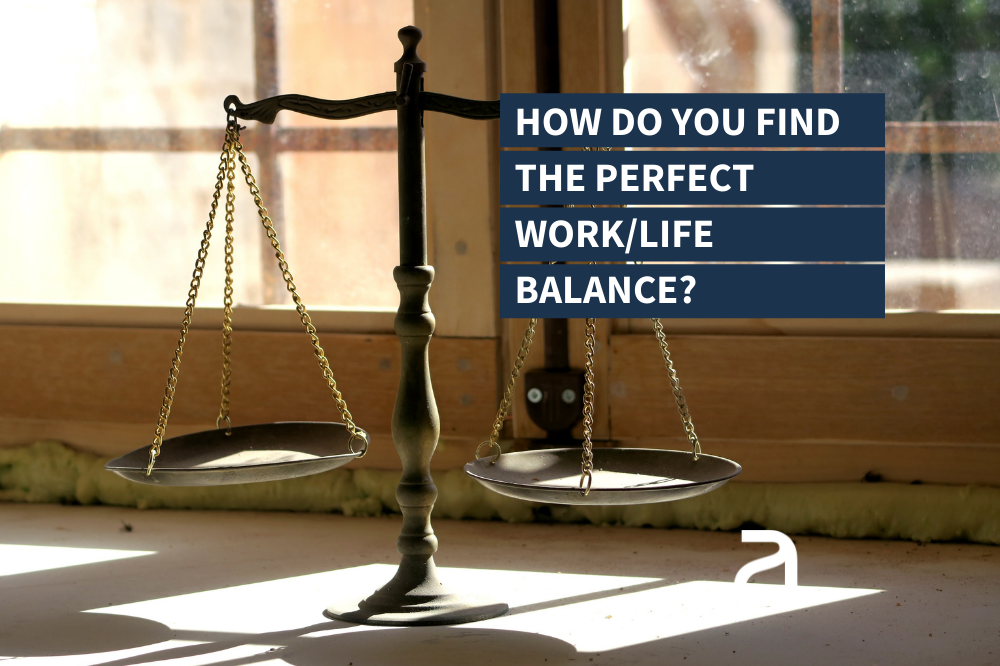
One week is seven days long, this is pretty much common knowledge. One week is 168 hours long, not so common knowledge. On average 56 of these hours we are sleeping and 40 of these hours we are working. Applying some quick maths, that leave us with 72 hours free time… That is 43% of our week. Free time! So why does it not always feel like it? Why is the work/life balancing act still so tough?
Maintaining a work/life balance is not just cliche, it is important in creating a healthy work environment, It will make you a more well-rounded creative and can help you direct attention where it is due and allow you to become more efficient with your work. More importantly it is essential for your health and relationships. It can help lower stress, prevent burnouts and fatigue and can do wonders for your mental health.
How easy is this for creatives though? Your work and your mind do not just stop when you want it to. You could be freelancing and working on your own schedule or you may have a huge project where your inspiration comes at 1am.
It is easy to talk about how important a heathy work/life balance is, but what actions can you take to improve yours if it is out of line?
DIGITAL DETOX
This is exceptionally important, not just at work but also outside of work. It is so difficult to not look at a screen or attend to our digital souls nowadays. Not only do we communicate with our nearest and dearest digitally but most of our work communication and tasks are completed digitally, it is undoubtedly integral.
Take some time out, set the comms to away, mute your email until tomorrow morning. If you are going to use your devices let it be to speak to your parents, or plan pub trivia. Switching a device off, does not mean you are switching yourself off. The digital world can wait, it can free up time meaning you can feel motivated to be creative, even if you are a digital creative, it frees time to conceptualise.
TAKE BREAKS
You may be working, but this does not mean you are not allowed to have a break. You may feel you are in a flow, or you have far too much to do. Taking a break can minimise stress and exhaustion, replenishes you mental resources and can help you become more creative.
You are not losing productivity by taking a break, whether it is a 2 minute stop to have a stretch (reaching for the sky can drive oxygen to your brain to wake you up, try it now) or taking a 20 second break to look into the distance to rest your eyes (also do this). Remember breaks are most effective taken BEFORE they are needed. Don’t be a martyr.
FILL YOUR FREE TIME - WITH YOU
When you think of “you” time, it is not just limited to meditation and face masks. It is allowing yourself to do the things you enjoy, whether it be binge watching a series or going to the park with your dog. Outside of work hours ensure that you have activities that confirm how valuable your free time is. Have a dinner party, start climbing, go to the beach… Just don’t allow your free time to be overtaken by work commitments and heavy work focussed thinking.
MEASURE AND SCHEDULE YOUR TIME
Work/life balance is just that, not sacrificing one for the other. For many people the work they do and the career they are pursuing is important. This should not hinder your hobbies, quiet time or relationships. Identify what it is that needs to be done, prioritise and measure the time it should take and then schedule so you can work efficiently and not have to run over or take work else where. Make the most of your scheduled work time. Anything you don’t get finished - leave until tomorrow. Don’t fall into the trap of being a motivated planner but not a motivated executor.
LIMIT TIME-WASTING
Identify what is important in your life and make sure it truly reflects your priorities, not someone else’s. Then draw firm boundaries so that you can devote time to all the high priority people and activities. From here you’ll be able to identify when you fall into time wasting spirals - such as scrolling through emails or surfing the Internet.
This is where you truly find the balance, if you’re watching videos whilst you should be working, it just means you’ll be working when you should be doing something else further down the line.
COMMUNICATE
If you feel your balance tipping you need to communicate whether it be with your boss or with your friends, be transparent where your focus needs to be and if you are taking too much on, this way other people can help.
This is by no means the answer or bible to maintaining a healthy work/life balance, but if you put into practice some of the tips it can help you find your own solutions.
If you have any tips on how you seperate your work life with you personal life, or healthily combine the two, please get in touch with Harrison at harrison@getartisan.com.au.